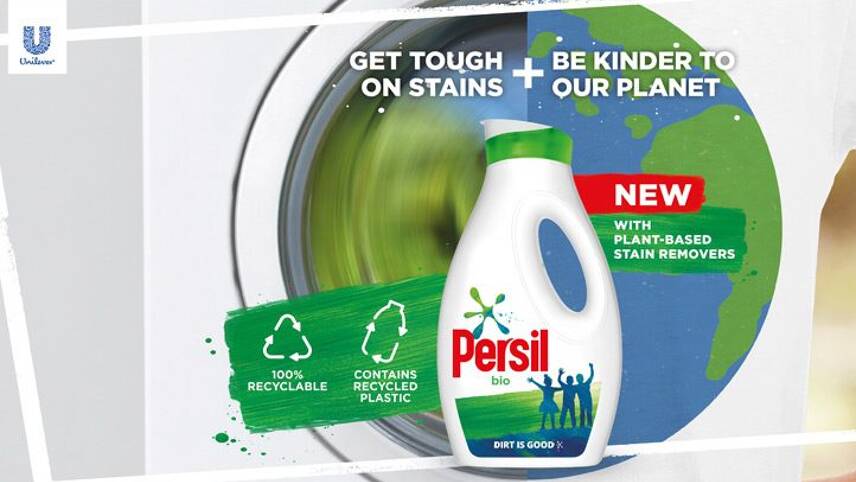Register for free and continue reading
Join our growing army of changemakers and get unlimited access to our premium content

Unilever has pledged to transition to more sustainable sources of carbon
Last week, Unilever unveiled plans to replace 100% of the carbon derived from fossil fuels in its cleaning and laundry products with captured, natural and recycled carbon within a decade as part of a Clean Future ambition.
The Persil re-launch is the first product to fall under the Clean Future ambition. The new liquid formula for the cleaning product consists of plant-based stain removers and biodegradable ingredients, rather than chemicals from fossil fuel stocks.
The formula has also been concentrated by 23%, allowing for smaller bottles to be used. Not only will this reduce packaging, but it will also reduce truck journeys by 19% each year, contributing to a lower carbon footprint for the product.
In addition, the Persil bottles will be made with 50% post-consumer recycled plastic, are 100% recyclable. A dosing ball has been removed completely from the product, which will contribute to an overall reduction in plastic used in Persil bottles by more than 1,000 tonnes annually.
Unilever UK & Ireland’s home care VP Charlie Beevor said: “Clean Future is our vision to transform the sustainability of our global cleaning and laundry brands. Our new Persil Liquid is just the start of providing products that are both effective and kind to the planet.
“We’ve seen unprecedented demand for our home care products in recent months, and we need to maintain momentum on how we continue to adapt and evolve our products to ensure we are continuing to lead the way in terms of sustainability. As an industry, we must break our dependence on fossil fuels and we’re proud to be leading the charge.”
At present, most cleaning and laundry products made by large businesses, including Unilever, contain chemicals made from fossil fuel stocks. After calculating that these chemicals account for 46% of the life-cycle carbon footprint of these products, Unilever has pledged to transition to more sustainable sources of carbon, in line with its 2039 net-zero commitment.
Funding for the process of transitioning away from fossil-fuel-based carbon will be allocated from Unilever’s €1bn Climate and Nature fund, unveiled earlier this summer.
The fund has been created to finance activities that will ensure Unilever meets its 2039 net-zero target. The business will account for upstream Scope 3 (indirect) emissions, Scope 2 (power-related) and Scope 1 (direct) emissions when calculating progress towards the goal. Downstream Scope 3 emissions, generated after the point of purchase, will not be counted.
Matt Mace


Please login or Register to leave a comment.